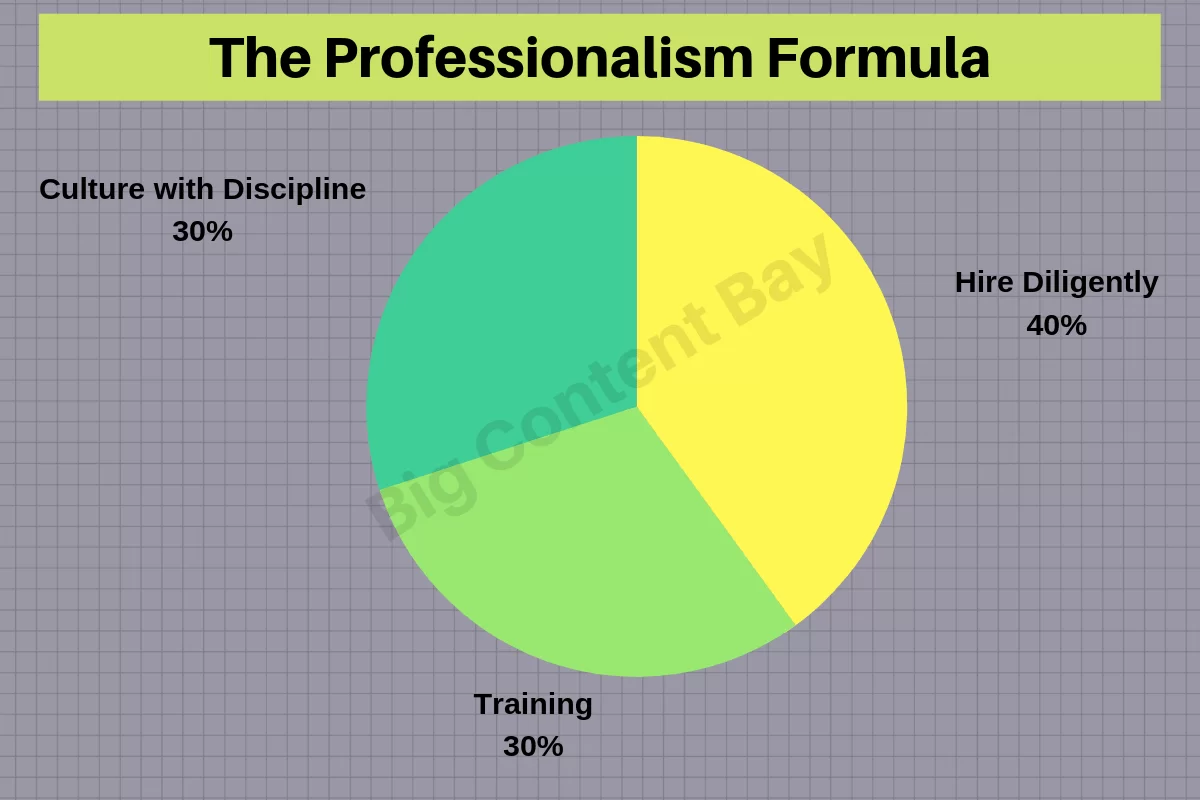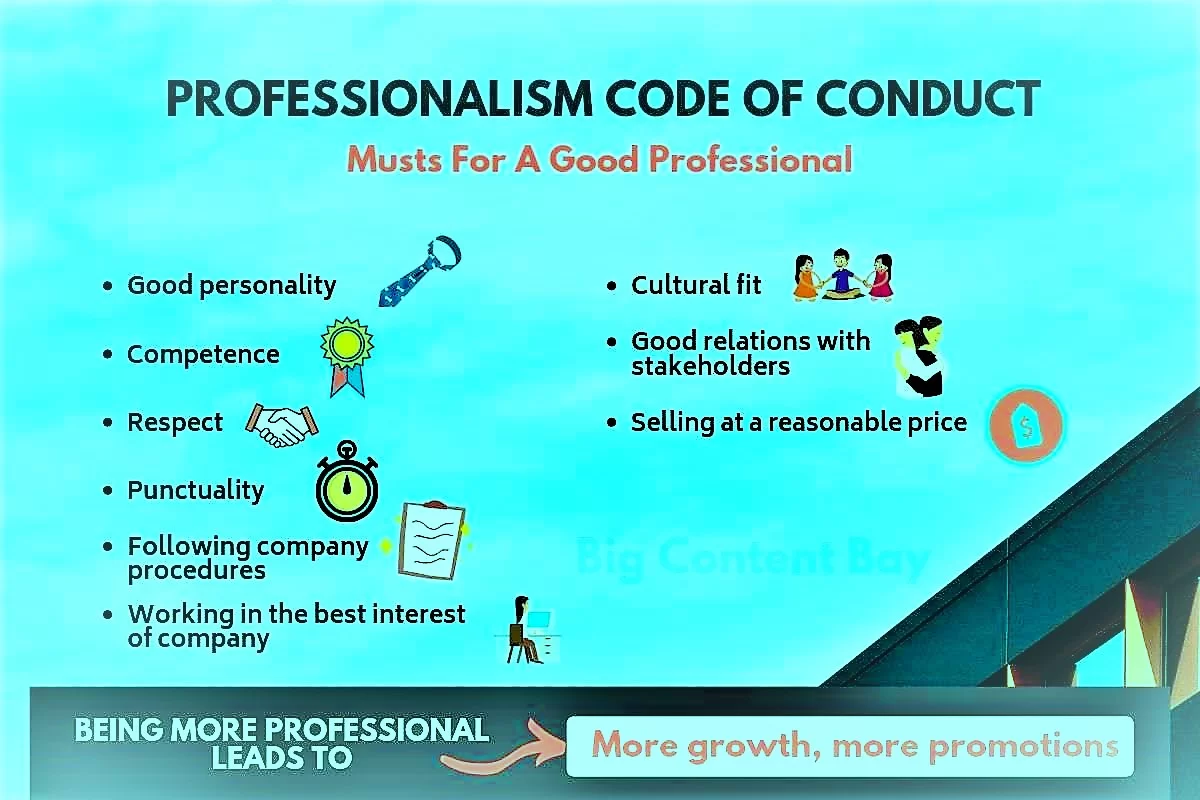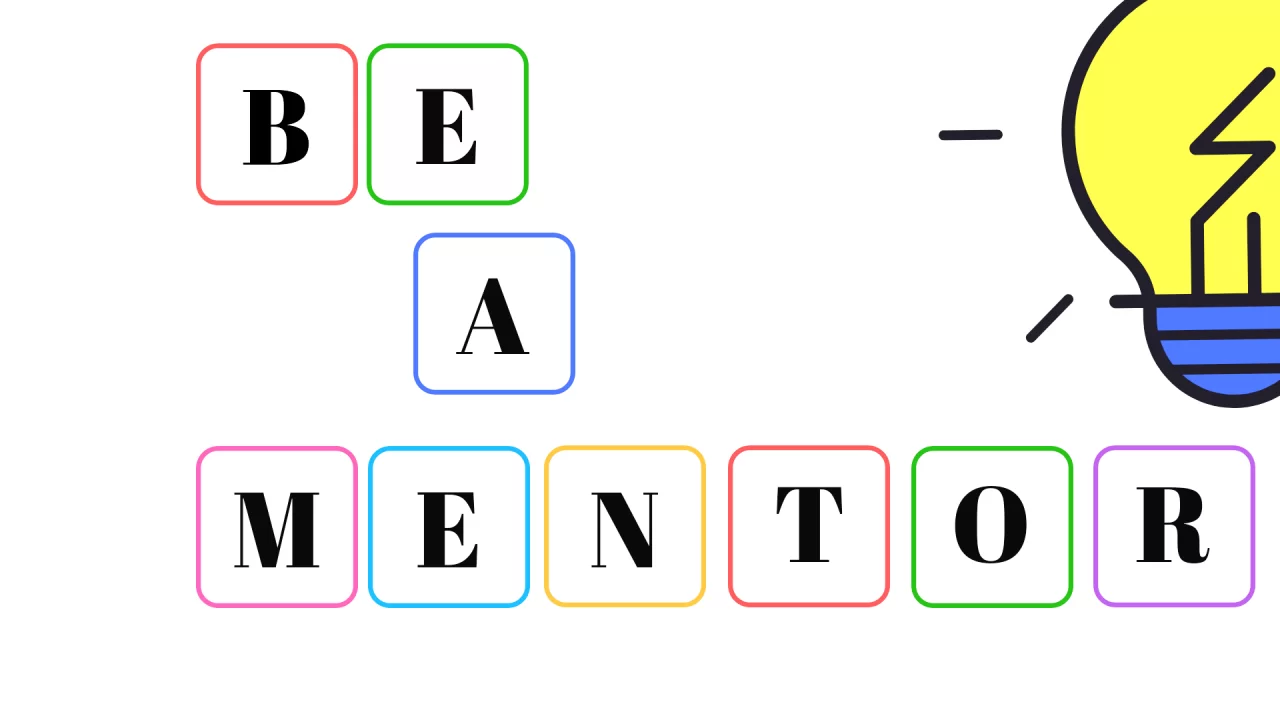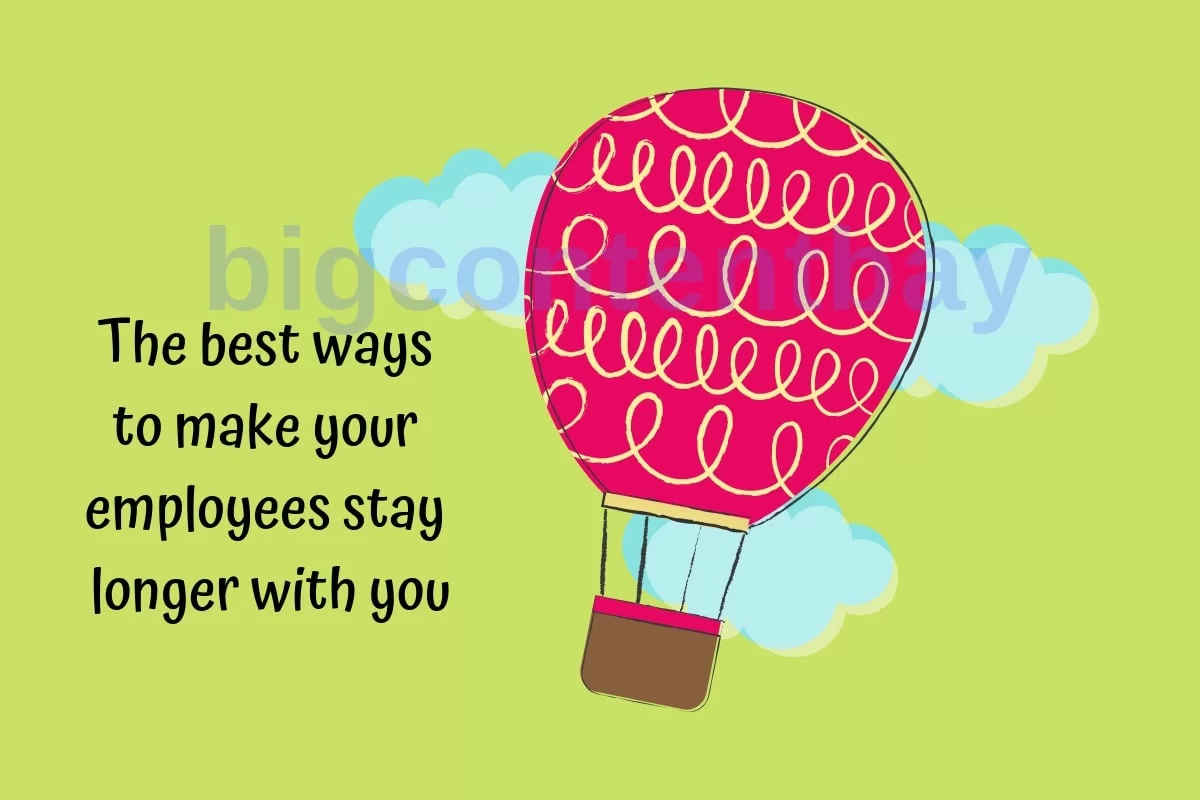Over the course of time, my belief in achieving and sustaining professionalism in the workplace has grown stronger. My whole outlook on work is based on following a professional code of conduct. Without it, you can’t move forward nor you are able to maintain your existence, both as an individual & an organization.
Professionalism in the workplace deals with wearing the professional behavior inside out. So, what do we mean by professional behavior? This extensive article will show you how you put on the professional behavior on your mind and body to win the competition at the job. And yes, today we are going to share with you the best strategies to give a consummate professional look where not only you’ll feel accomplished yourself, but others will acknowledge it too.
What is professionalism?
Putting it very simple, professionalism is “the set of attitudes, behaviors and competencies required to perform a particular job”.
Smart ways to develop professionalism in the workplace
Creating a professional working environment is entirely the responsibility of the management. In addition to it, every employee is supposed to possess professionalism for his own growth and development. Let us see what constitutes the professionalism code of conduct:
- Impressive looks
- Remarkable competence
- Respect has a circulatory system
- Punctuality line
- Following the SOPs
- Working in the best interest of company
- Cultural fit
- Good relations with stakeholders
- Selling at a reasonable price
1) Impressive looks
Do you know you don’t have to be beautiful to look good? Being beautiful isn’t in your hands but possessing a charming personality is. Having a good dress sense and an organized look is totally your own choice. Coming to office with sleepy face, ruffled hair and wrinkled clothes never looks tempting to anyone. Instead, choosing the right colors for your clothing, a neat hairstyle and exhibiting energetic body moves deliver you a perfectly professional look.
Looks are extrinsic
Looks constitute everything that is visible and extrinsic; whatever comes to the minds of people when they see you. A lazy and sluggish body language ruins your impressive dressing, so the body language and attire go hand in hand. It is all about what you wear and what you radiate.
Professional variations
Your attire can vary slightly from one profession to another. If you are in customer service, you need to dress up formally every time because you are representing your company in front of third parties in the job role. But if you do not have direct customer interaction, your company might give you some freedom to dress up casually.
I would personally recommend even if you have autonomy to chose your attire, always dress up formally with a little fashion touch up.
Energetic vibes
The energy that you carry and radiate should be so strong that it literally affects the energy of your colleagues. Have you ever had a colleague around who used to be so congenial and spirited that you didn’t feel bored working with him? You got it right, I want you to be the same kind of person. A good professional has the ability to make others feel warm and active.
2) Remarkable competence
One of the most cardinal elements to develop professionalism in the workplace is competence. Competence comprises the knowledge, skills and abilities of an individual. The highly dynamic work environments today require high degree of competence for employees to be able to achieve their professional goals.
You know what is the tying fact here? A competent professional has the spark that makes him radiate the energy that we talked about previously in the astounding looks. If you possess competence, you have the vigor, passion and exuberance that altogether shape your persona. So, both factors are tightly tied together. This is the competence that you carry with yourself no matter where you are working hence, it is an essential part of your profile.
Hiring for competence
Company policies have the greatest impact. Companies usually do not go for professional hiring. They go for hiring based on GPA, percentages earned in college/ university degrees or experience. Competence is much more than that. It is based on a cumulative function of knowledge, skills and abilities of an individual. If you go for only one out of these while hiring, you’ll fail as a company. Consequently, you will not get the element of professionalism in your workforce.
Job mastery
Job mastery is the expertise to perform the job that your company assigns to you. It has a special significance among the competency elements. Job competence covers the qualities that you wear inside out to perform a job while job mastery is strictly relevant to how good you are at performing the specific job responsibilities. You might have seen people who are too good at performing a job because they have been doing it for years, but they do not know the science behind different processes. You might have come across a person who has too much theoretical knowledge but practically he is an inexpert.
Summing it up, you need to have a person who is both competent and particularly expert in doing the job.
Nature of job matters
But, not everyone whom you are hiring is an expert. In such cases, you need to look for the best combination of skills, abilities and knowledge. Hire someone who has the nerve to develop his skills to achieve job mastery. It entirely depends upon the nature of job. Some jobs require more job mastery while some jobs require specific skills or abilities to help in performing the job.
Therefore, having a good balance of all these three competency elements when you hire, can get you professional employees. Good hiring managers know well which competency factors to consider for every kind of job. Thus, managers have a big role in acquiring the professional workforce for the company.
3) Respect has a circulatory system
Oh! This one thing is non-existent nowadays. A few months back, I worked with an organization after a 4 years break. And I strongly felt that today, our people do not know how to respect others. How about rating the respect level in our organizations? I would give it 25%. Today, we will make it obvious what is included in respect when we talk about professionalism in the workplace.
If you are a boss, you should respect others and if you are not the boss then, why do you try to be a boss? This is one rule of thumb you must follow in the professionalism code of conduct. This includes your tone and choice of words. Often, a boss is younger than his subordinates both in experience and age but that does not withdraw the element of respect. He must respect the people considering their experience and age. I have seen young bosses humiliating their old subordinates. I call it misuse of authority. Man! This totally ruins professionalism in the workplace.
Give respect, take respect
Respect has the ability to circulate. It comes back to you if you deliver it to others. Reminds us of karma, isn’t it one of the best ways to develop professionalism in the workplace? Giving respect, taking respect; irrespective of age, experience or designation.
Respecting others includes not irrelevantly interfering in other’s jobs. It also includes respecting the perspectives and ideologies of people. Developing a work environment where everyone respects others’ point of view promotes confidence among the employees which ultimately gives rise to innovation and circulation of new ideas. So, in every way, it is company that benefits by promoting respect.
4) Punctuality line
With the enterprising organizational trends, punctuality is getting somewhere lost. It has a strong influence on your company culture and the behaviors of employees. Flextime concept is undoubtedly good, but the way company wears and implements it, it can construct or destruct professionalism in the workplace.
Flextime
Let us understand the concept of flextime. You need to complete your weekly fixed number of hours and you decide how you can manage it. Now, the way we take it: we come to office on our own timings & leave on our own and there is no check of the completion of the target of week hours which is usually 40 hours.
In certain companies, the bosses say complete your work and leave any time. That is not a good practice either. You know what happens in such organizations? People start getting secretly frustrated. Majority of the people engage in dodging the system by throwing their work on others hence, creating high degree of dissatisfaction among the staff members.
Implement with care
Make sure everyone is treated the same when it comes to punctuality. Implementing flextime kind of practices require complete understanding of their effects on all the employees in all situations. The best practice is to keep track of the weekly hours completed to avoid dissatisfaction among employees. Punctuality is indeed one of the greatest indicators when we measure professionalism in the workplace.
Many organizations have the culture of all employees coming late to the office. The bosses come to office late, so the subordinates follow the same practice. These personal behaviors of employees negatively affect the efficiency and productivity of organization on the whole.
Therefore, if you are not punctual, you need to work hard to become a good professional.
5) Following the company procedures and SOPs
A good professional follows the company procedures and policies. Making your own rules and going against the grain is not an advisable practice. Yes, you are free to share your ideas and suggestions to improve company procedures but going against them like a rebel is contrary to professionalism code of conduct. Imagine if your colleague always goes against the company policies, he is more likely to create a negative work environment where people start losing job satisfaction and engagement. Instead, using the right ways to express your point of view is a better option.
6) Working in the best interest of company
Why do you work? Off course to earn money. But when you are serving an organization, you need to work in the best interest of the company. I always say your personal-professional goals must be aligned with your company goals. Often, your personal interest collides with the company interest. The best option is that if you see yourself growing in that company and wish to work longer, always pick the company interest over personal interest. This is a bit difficult clause of the professionalism code of conduct, but it pays you off in the long run.
7) Cultural fit
A good professional fits well into the culture of the company. This includes following the norms and customs which are essential part of the office environment. But it is not always possible. It is seen that cultural fit is one of the greatest reasons that even the top executives of the world quit their jobs for. Practically speaking, it is not always feasible to flow with the wind. An office having strong political culture always finds it hard to retain employees. And an ill culture has high tendency to demotivate employees leading to stress at work.
My suggestion: Try your best to fit in or leave. Incompatible culture ruins yours professionalism, work & life quality. If you are not happy, leave.
8) Good relations with stakeholders
In order to groom oneself as a professional, one must understand that he has to deliver the best. Today, when employee, customers, supplier, distributor & marketer retention decides the existence of a business, it is essential that we focus on the quality of these relationships. It is a more specific way to work in the best interest of company. Hence, if you have annoyed customers or you are not able to retain them, you are failing as a professional.
9) Selling for a reasonable price
This one sounds very selfish. I advise, “sell at the best price”. Here, the keywords are “sell” and “best price”. Let me explain the theory behind it. First of all, understand that your professionalism demands that you sell. Many people ask you for free of cost products/ services. Mostly these would be your acquaintances and familiars. So a good professional says, “there is no such thing as free lunch”. It might sound rude but a good professional never forgets his goals. Name a CEO who does not take salary for his work? No one, my dear. Therefore, be a professional seller.
My advise: Always charge people for the services you provide. A good professional has money goals as a big motivator.
The second keyword is “best price”. So, set the best or most reasonable price for your products/ services which has to be decided keeping the consumers’ market in mind. Setting too high prices is a sign of inadequate knowledge of customer needs which results in less customer retention.
3 top strategies to develop professionalism in one go
Hire diligently
As I mentioned earlier, diligent hiring helps a lot in the creation of professional behavior in the workplace. Looking for competent and the most suitable people to perform a job is the first step. People are usually displaying their best attire during interviews. Often, competence outweighs attire. If you find a candidate with the required competence but not an impressive attire, go for the competence and chose him. Your inputs can help him improve his attire over time. If we focus on hiring true professionals, we are half done with the effort to create a professional work environment.
Training
This is always the best option to develop professionalism in the workplace. I always insist upon training your employees. Train, train and train, consistently. Train them how they can best fit into your culture, teach them what are the best designs and color combinations to wear in the office, develop them for the competencies that they lack. There is no limit to what we can teach them because as they develop, our organization grows. So, creating professionalism in the workplace is entirely in your hands as a manager and as top management.
Discipline & culture
So here, decide you want professional behavior in the workplace or not? If yes, then you must make certain rules and make everyone follow them. Being a lenient and friendly boss is one separate thing, but discipline should be in place always. Punctuality policy is foremost. Make your employees begin their day with discipline besides giving them some autonomy to perform their jobs. In short, make them feel free with some essential rules in place.
Maintaining a culture of respect and tolerance is another step which can be taken by the top management. This requires devising the organizational norms and communicating them to the employees at all levels. Reinforcing a culture based on professionalism is entirely management’s responsibility.
The great benefit of being a good professional
A good professional enjoys faster growth, more promotions and has a better accomplishments’ rate than others. He gains more confidence of the top management hence, has more job security than others.
Share with others





